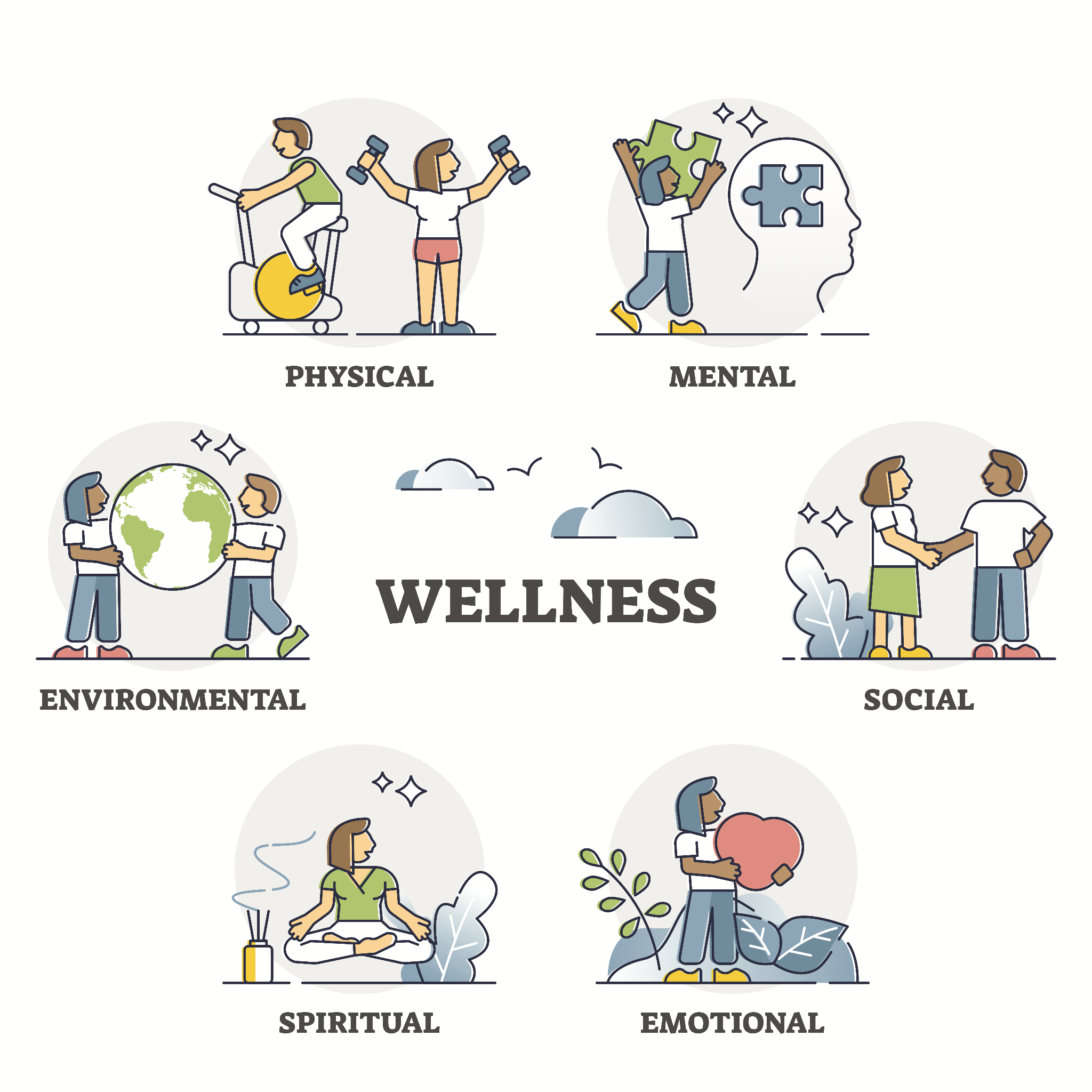A Comprehensive Guide to Substance Abuse Rehab
Substance Abuse recovery, usually referred to as rehabilitation, is a structured process created to help individuals get rid of reliance on drugs, alcohol, or other addicting materials. It is not just about cleansing-- it is a journey of psychological, psychological, and physical transformation. Rehab facilities give safe atmospheres where people can confront the root triggers of their dependency, address emotional triggers, and learn coping systems to endure lasting soberness. This process is guided by qualified experts, consisting of specialists, clinical physicians, and therapists that understand the complex nature of addiction as both a behavioral and physiological condition.
Comprehending the Core important Abuse Recovery
At its core, recovery has to do with reconstructing an individual's life. Dependency usually leaves deep marks-- stretched partnerships, economic distress, wellness troubles, and mental illness. Via thorough rehabilitation programs, people are provided the tools to fix these aspects progressively. Rehabilitation isn't practically avoiding compounds; it has to do with redeeming control and rediscovering one's feeling of self-regard. The programs highlight structure, consistency, and personal liability, which are essential to long-term recovery success. Every tiny landmark throughout rehab offers as a foundation for lasting soberness.
Substance Abuse Abuse rehabilitation is not a one-size-fits-all approach. It identifies that each person's addiction story is distinct-- what led to Substance Abuse abuse, exactly how it progressed, and just how healing can be sustained vary widely. Therefore, therapy centers tailor care plans based upon specific evaluations, making sure that every client obtains support that straightens with their mental state, addiction background, and life situations. This personalized technique significantly boosts recovery end results and assists prevent relapse as soon as individuals reintegrate right into everyday life.
The Benefits of Inpatient Rehabilitation Programs
Inpatient rehabilitation, additionally known as domestic treatment, offers one of the most efficient techniques for those fighting serious Substance Abuse dependency. Among its primary advantages is the structured and distraction-free environment. When a person enters an inpatient facility, they are temporarily gotten rid of from exterior triggers-- such as pals who utilize compounds, difficult workplaces, or family problems-- that could prevent their recuperation. This seclusion from unfavorable influences allows patients to concentrate totally on recovery. Living within a monitored and helpful setting creates the security needed to break old habits and create much healthier patterns of habits.
Another significant benefit of inpatient rehab is the 24/7 professional guidance offered to each patient. Withdrawal signs and symptoms from medications or alcohol can be unforeseeable and, in many cases, deadly. Inpatient centers have medical teams that give day-and-night care, making certain individuals are comfortable and safe throughout detoxification. Past physical health and wellness, continuous guidance also supplies emotional reassurance-- individuals know that aid is offered any time, which decreases anxiety and develops count on the recuperation process. This immediate access to mental and medical support significantly improves the success price compared to outpatient look after extreme addictions.
Last but not least, inpatient rehab programs cultivate a strong sense of area and accountability. Individuals interact with others who share similar battles, participate in group treatment, and take part in activities that motivate synergy and compassion. This setting nurtures shared understanding and lowers feelings of isolation commonly related to addiction. By linking with peers and gaining from their experiences, people establish social bonds that proceed to support them even after leaving the facility. This feeling of belonging, incorporated with consistent professional support, makes inpatient rehabilitation a very effective foundation for sustainable healing.
Inpatient Rehabilitation Solutions Used
Inpatient recovery facilities offer a diverse variety of services developed to treat the mind, body, and spirit concurrently. The initial phase typically involves clinical detoxification, a procedure that securely removes compounds from the body while handling withdrawal signs and symptoms. Detoxification is overseen by clinical experts who may administer medication to ease pain and protect against difficulties. Clients transition to organized day-to-day programs that include therapy, health, and counseling tasks when detox is total. This incorporated strategy makes certain that individuals not only get over physical reliance but additionally address emotional and emotional aspects of dependency.
Restorative solutions are at the heart of inpatient rehabilitation. Facilities deal individual treatment sessions, where patients function one-on-one with qualified therapists to reveal the underlying reasons for their dependency-- such as trauma, psychological health problems, or unresolved psychological pain. Cognitive-behavioral therapy (CBT), dialectical actions therapy (DBT), and inspirational speaking with are amongst the most typical evidence-based methods utilized. Furthermore, group treatment sessions provide a helpful room for clients to share experiences, gain point of view, and develop interpersonal abilities. Family therapy is additionally frequently included, aiding to restore count on and enhance interaction in between patients and their enjoyed ones.
Beyond standard treatment, lots of inpatient programs include alternative and entertainment services to advertise total health - substance abuse treatment Morris County. Yoga exercise, reflection, art treatment, and fitness programs help in reducing stress and teach mindfulness. Nutritional counseling guarantees that individuals restore physical imp source wellness, as Substance Abuse frequently depletes the body's vital nutrients. Some rehab focuses also offer trade training and academic workshops to assist clients get ready for reintegration right into culture. These diverse services are designed to heal the entire person-- not simply deal with dependency signs and symptoms-- by cultivating equilibrium, strength, and objective
Why You Have To Take Into Consideration Outpatient Programs
While inpatient rehabilitation uses an immersive and intensive approach, outpatient programs give a choice that enables versatility for individuals that can not dedicate to full time domestic therapy. Outpatient rehabilitation makes it possible for individuals to get structured treatment and medical support while keeping their everyday responsibilities-- such as family members, institution, or work treatment. For numerous people with moderate to modest addiction, outpatient therapy provides the excellent balance in between healing and day-to-day life. It enables patients to exercise the coping skills they find out in real-world atmospheres, strengthening their durability in the face of everyday challenges.
One more reason to consider outpatient programs is their cost-effectiveness. Inpatient care can be pricey because of holiday accommodation, meals, and 24-hour guidance, which might not be monetarily possible for every person. Outpatient programs, however, typically cost much less because they do not need household keeps. Numerous centers offer sliding-scale payment choices or approve insurance to make treatment obtainable. For those that have already completed inpatient rehabilitation, transitioning right into an outpatient program works as an important continuum of treatment, aiding keep accountability and avoid relapse via continuous assistance.
Furthermore, outpatient programs offer a high degree of personalization. Individuals can pick in between partial a hospital stay programs (PHP), extensive outpatient programs (IOP), or basic outpatient care, depending upon their degree of requirement. Each alternative gives differing levels of framework and time dedication. IOPs usually include a number of therapy sessions per week, while conventional outpatient care might consist of weekly therapy brows through. This flexibility ensures that people can obtain specialist aid tailored to their healing stage, making outpatient programs a practical and empowering selection for lasting healing maintenance.

Discovering Other Treatment Options in Substance Abuse Abuse Healing
Beyond inpatient and outpatient rehabilitation, there are several various other treatment choices readily available for people looking for recuperation from Substance Abuse addiction (addiction treatment). Medication-assisted therapy (FLOOR COVERING) is go right here one such technique, incorporating click for source suggested drugs with behavior modification to take care of withdrawal signs and symptoms and lower desires. Drugs like naltrexone, buprenorphine, or methadone are typically utilized in opioid addiction therapy, while acamprosate or disulfiram might support alcohol recovery. Floor covering aids support brain chemistry, allowing people to concentrate on therapy and lifestyle adjustments without the frustrating discomfort of withdrawal

Alternate therapies are additionally ending up being progressively popular basically Abuse treatment. These might include all natural methods like acupuncture, equine treatment, adventure-based counseling, and spiritual recovery programs. While these techniques may not change conventional therapy, they can enhance it by enhancing emotional guideline, self-awareness, and self-confidence. The goal of discovering different therapy options is to produce a recovery strategy that reverberates with each individual's worths, beliefs, and way of life. A customized mix of therapies usually yields one of the most lasting results, encouraging individuals to live a satisfying, substance-free life.
The Course to Long-Term Sobriety and Healing
Finishing rehabilitation-- whether inpatient or outpatient-- is only the start of a long-lasting recovery journey. Aftercare programs play a critical role in keeping soberness and avoiding regression. These programs might include continuous treatment, assistance teams like Narcotics Anonymous or Alcoholics Anonymous, and sober living plans that give continued structure. Consistency and neighborhood are vital; individuals who stay linked to recuperation networks are more likely to sustain long-lasting progression. Rehabilitation teaches the required coping skills, however aftercare makes certain that those abilities are applied and strengthened in real-life circumstances.
Long-lasting recuperation additionally relies on way of living changes that support mental and physical wellness. Establishing healthy routines-- such as routine exercise, balanced nutrition, and mindfulness methods-- assists bring back balance to the body and mind. Engaging in purposeful activities like volunteering, seeking pastimes, or reconnecting with liked ones can fill up the psychological space left by Substance Abuse use. Developing a positive attitude and focusing on future goals provide recuperating individuals a renewed feeling of identification and direction. Sobriety is not concerning starvation; it's concerning recovering life's richness and opportunities.

Via detailed rehab programs, individuals are given the devices to fix these aspects gradually. Inpatient rehab programs cultivate a solid sense of community and liability. While inpatient rehabilitation provides an immersive and extensive strategy, outpatient programs give a choice that enables flexibility for people that can not commit to permanent household treatment. Outpatient rehabilitation makes it possible for clients to receive organized treatment and medical assistance while maintaining their day-to-day obligations-- such as work, college, or family care. Past inpatient and outpatient rehabilitation, there are a number of various other treatment alternatives available for people seeking healing from Substance Abuse dependency.